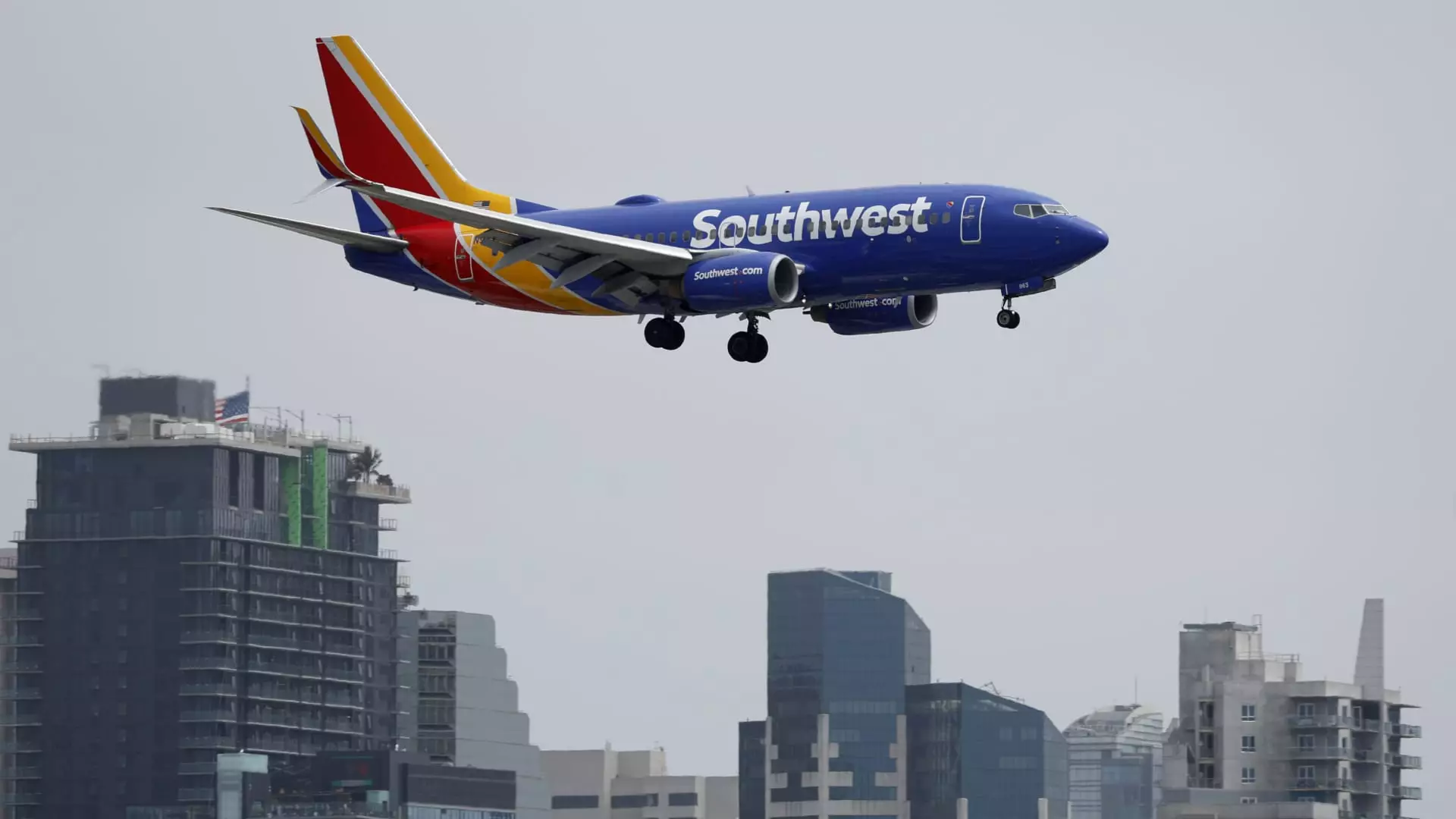In a rapidly changing aviation landscape, Southwest Airlines finds itself at a crossroads, compelled to make significant alterations in its operational strategies. The airline’s management has issued stark warnings regarding “difficult decisions” anticipated in the near future, driven largely by the demands of activist investors, notably Elliott Investment Management. This firm has taken a proactive stance towards encouraging a change in leadership within the airline as a means to stabilize and enhance financial performance.
Shifts in Business Strategy
As the airline industry grapples with post-pandemic recovery, Southwest is pivoting its more than five-decade-long operational framework to generate greater revenue. Among the most notable changes is the shift from open seating to assigned seating, a significant cultural shift for a carrier known for its casual boarding process. Additionally, Southwest is venturing into the realm of premium offerings by introducing seats with extra legroom for a higher fare. The introduction of overnight flights demonstrates the airline’s commitment to adapting to customer needs for convenience and flexibility.
A crucial component of Southwest’s strategy is its increased visibility on travel aggregation platforms, such as Google Flights and Kayak. This move is critical in attracting a digitally savvy customer base, particularly targeting younger travelers who prioritize convenience and access to information. The advertising strategy has also been revised to resonate better with this demographic, signaling a concerted effort to rejuvenate its brand image.
Network Adjustments for Financial Viability
In an internal communication to employees, COO Andrew Watterson acknowledged the necessity for network adjustments to ensure the company can return to profitability. While emphasizing that station closures are not on the horizon, he hinted at possible reductions in the carrier’s operational footprint in certain cities. This foresight aligns with broader industry trends where competitors, such as JetBlue, have strategically withdrawn from less profitable routes to concentrate resources on high-revenue flights.
Southwest is preparing to unveil an updated flight schedule, an important move amid ongoing restructuring discussions. The upcoming investor day at its Dallas headquarters promises to shed light on further operational strategies and route adjustments that the airline is contemplating. Importantly, Elliott Investment Management’s influence continues to loom large over Southwest, calling into question the effectiveness of current leadership in navigating these tumultuous waters. With the impending transition of executive chairman Gary Kelly, who announced his intention to step down post-shareholder meeting, a fresh perspective may soon be introduced.
Southwest Airlines stands at a pivotal juncture as it seeks to redefine its operational strategies to drive profitability amid pressures from both internal and external sources. The impending changes are a testament to the airline’s resilience and adaptability in a competitive industry. As the airline endeavors to implement these adjustments, the eyes of investors, employees, and travelers alike will be focused on how effectively Southwest can navigate this transformation while maintaining its core values and customer loyalty.

